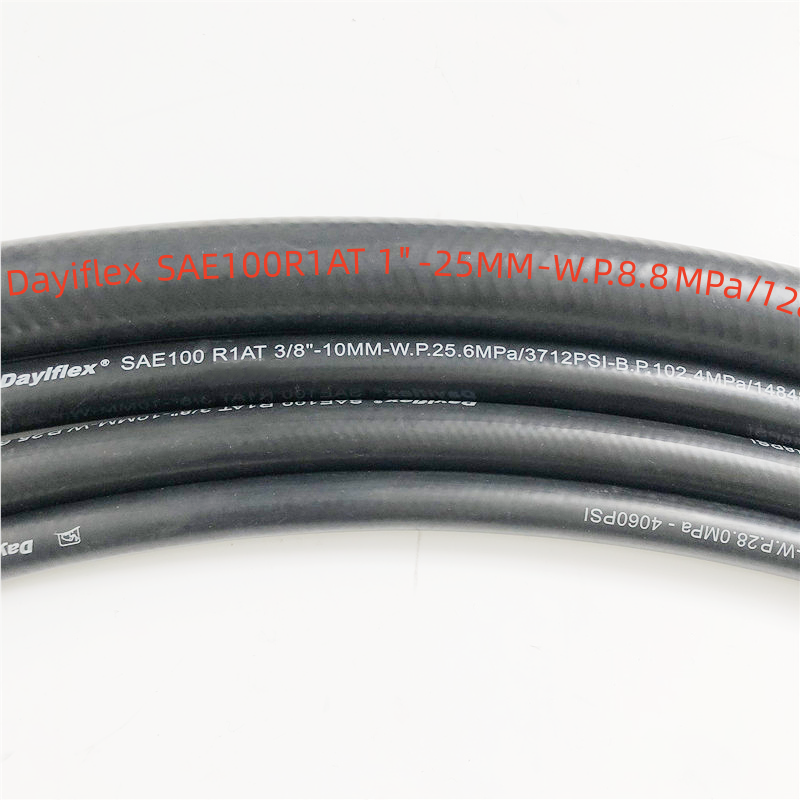8 月 . 16, 2024 10:41 Back to list
OEM Suppliers for Hydraulic Hose Fittings Manufacturing and Industry Solutions for Various Applications
The Importance of OEM Hydraulic Hose Fittings Factories in Modern Industry
In today's industrial landscape, the role of hydraulic systems is more critical than ever. Hydraulic machinery powers a multitude of applications, from construction equipment to industrial machinery. At the heart of these systems are hydraulic hoses and fittings, which facilitate the transfer of hydraulic fluid under pressure. Original Equipment Manufacturer (OEM) hydraulic hose fittings factories play an essential role in providing high-quality, reliable components that ensure the efficient functioning of these systems.
Understanding OEM Hydraulic Hose Fittings
OEM hydraulic hose fittings are specifically designed and manufactured to meet the precise specifications and requirements of a particular machine or application. Unlike aftermarket products, which may offer generic solutions, OEM fittings are made to fit perfectly and perform optimally within the intended hydraulic system. This precision is crucial because any deviation in size or functionality can lead to leaks, failures, and even catastrophic accidents in hydraulic machinery.
The manufacturing process of OEM hydraulic hose fittings involves advanced engineering techniques and the use of high-quality materials. Factories often employ state-of-the-art technology to produce fittings that can withstand the high pressures and harsh conditions typical of hydraulic systems. This ensures not only durability but also safety, which is paramount in industrial applications.
The Role of Factories in the Supply Chain
OEM hydraulic hose fittings factories are integral to the supply chain, serving as the bridge between raw materials and the end-users who rely on these components. These factories work closely with machinery manufacturers to develop custom fittings that meet specific needs. This collaboration is essential in achieving performance goals and complying with safety regulations.
Moreover, these factories often prioritize efficiency in their operations. By utilizing lean manufacturing principles and automation, they can reduce waste and lower production costs while maintaining high quality. This efficiency translates into competitive pricing for customers and contributes to the overall profitability of businesses that rely on hydraulic systems.
oem hydraulic hose fittings factories

Quality Assurance and Certification
One of the critical advantages of sourcing from OEM hydraulic hose fittings factories is the assurance of quality. Many of these factories adhere to international standards and certifications, such as ISO 9001 for quality management systems and ISO 14001 for environmental management. This commitment to quality ensures that the fittings produced meet rigorous performance and safety standards.
Furthermore, OEM manufacturers often conduct extensive testing on their products. This includes pressure testing, durability testing, and compatibility assessments with various hydraulic fluids. Such thorough checks are vital in ensuring that the fittings will perform as required in real-world conditions.
Future Trends in Hydraulic Hose Fittings Manufacturing
As technology continues to advance, so do the manufacturing processes and materials used in producing hydraulic hose fittings. Innovations such as 3D printing and advanced metallurgy are beginning to play a role in the design and production of these components. Additionally, with the increasing focus on sustainability, many OEM factories are exploring eco-friendly materials and practices.
The demand for customized solutions is also on the rise. As industries become more specialized, the need for bespoke fittings tailored to specific applications will continue to grow. OEM hydraulic hose fittings factories are well-positioned to meet this demand, thanks to their close collaboration with machine manufacturers and their in-depth knowledge of hydraulic systems.
Conclusion
In conclusion, OEM hydraulic hose fittings factories are indispensable in the modern industrial sector. By providing high-quality, precise fittings, these factories contribute significantly to the safety and efficiency of hydraulic systems. As technologies evolve and industries demand more tailored solutions, the importance of these factories will only continue to increase. For businesses relying on hydraulic machinery, partnering with reputable OEM manufacturers is crucial for ensuring optimum performance and reliability.
-
EN857 2SC Hydraulic Hose Suppliers OEM & China Manufacturers
NewsMay.30,2025
-
51mm Hydraulic Hose Manufacturer China OEM Durable & Custom Solutions
NewsMay.30,2025
-
OEM Rubber Air Hose Supplier Durable Custom Solutions
NewsMay.29,2025
-
High-Pressure Wrapped Cover Steel Wire Spiral Hydraulic Hose Supplier
NewsMay.29,2025
-
Rubber water suction and discharge hose
NewsMar.07,2025
-
SAE 100 R6/EN 854 R6 Fibre Braided Oil Hose
NewsMar.07,2025



